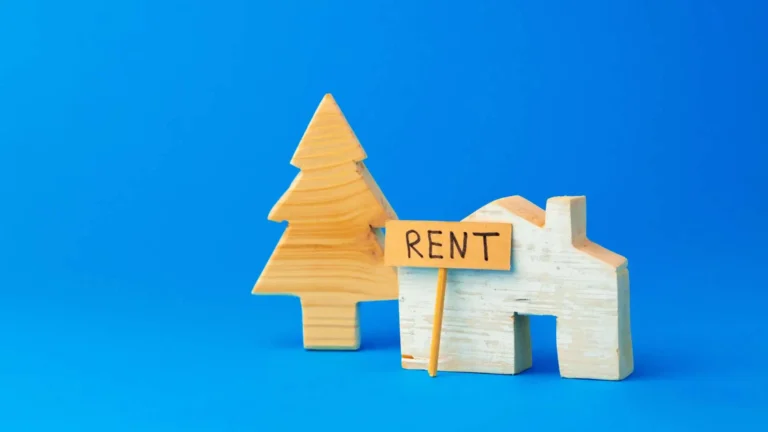Table of Contents
The Solo Buyer’s Dilemma
For decades, the image of the first-time homebuyer was a married couple holding a “sold” sign in front of their new house. But in 2025, that picture is shifting dramatically. Increasingly, single adults are weighing the rent-versus-buy decision on their own, without a partner to share the financial, emotional, and practical load of ownership.
And it’s no small decision. With mortgage rates still hovering around 6.5%, home prices near historic highs, and wages struggling to keep up with inflation, buying solo has never felt more challenging. Conversely, renting offers flexibility, fewer responsibilities, and insulation from costly surprises.
Which path makes sense? Should single adults aim for ownership as a wealth-building milestone, or is renting the smarter, lower-stress move? The answer depends on more than monthly payments; it requires a holistic look at finances, lifestyle, long-term goals, and psychology.
The Financial Reality of Buying Alone
Buying a home has always been expensive, but the math gets even tougher for single adults. Without a partner’s income to help qualify for a mortgage or share expenses, every cost, down payment, closing fees, taxes, insurance, and maintenance, falls on one person.
Higher Barriers to Entry
- Down Payment: On a $300,000 home, a 10% down payment means $30,000 upfront. For one income earner, that savings target is often out of reach.
- Closing Costs: Add another 2–5% of the home price in fees, easily $6,000–$15,000.
- Emergency Fund: Lenders recommend 3–6 months of expenses in savings. For a single homeowner, that cushion is critical because there’s no partner to cover gaps if income is disrupted.
Mortgage Qualification Hurdles
Lenders qualify buyers based on debt-to-income ratios, credit scores, and job stability. A high student loan or car payment can quickly drag down ratios for singles. Even with a solid salary, qualifying for as much house as a dual-income couple can be harder.
Ongoing Monthly Burden
Mortgage, property taxes, insurance, and upkeep often cost more than rent in the same area. A single buyer has to shoulder it all without the safety net of shared bills.
Read related blog: Evaluating Homeownership as an Investment: Top 10 Reasons
The Hidden Strengths of Renting for Singles
Renting often gets framed as “throwing money away,” but it can be a strategic move for single adults.
Flexibility to Adapt
Singles may experience more life transitions, career moves, relationships, and relocations. Renting allows for easy mobility and avoids the risk of being tied to a mortgage and property when life pivots.
Lower Upfront Costs
Instead of draining savings for a down payment, singles can preserve liquidity, keeping money invested in retirement accounts, stocks, or side hustles that may yield higher returns than home equity.
Insulation from Surprise Repairs
A broken furnace, a leaky roof, or foundation problems don’t just hit finances; they hit mental energy. Renters avoid the stress of big-ticket emergencies. For one person managing life solo, that peace of mind is invaluable.
More Room for Lifestyle Choices
Without the burden of high housing costs, renters can allocate more income toward travel, education, hobbies, or entrepreneurial ventures. This often leads to greater life satisfaction than being “house poor” in a home they can barely afford.
Read related blog: Frugal Meal Planning Tips for Single-Person Households
Emotional and Lifestyle Considerations
Homeownership carries symbolic weight; it’s still viewed as a marker of stability and success. But singles must ask: Is the symbolism worth the stress?
Pride vs Pressure
Owning can bring immense pride, but it also brings pressure to maintain and manage everything alone. Even small repairs, like unclogging gutters or fixing appliances, can feel overwhelming without a second set of hands.
Social Trade-Offs
Renting in vibrant neighborhoods can give singles access to community, nightlife, and social opportunities. Buying might mean isolation, particularly in more affordable suburban or rural areas.
Psychological Load
When handled solo, the “mental checklist” of homeownership, insurance renewals, maintenance scheduling, and paying contractors can be overwhelming. Renting allows singles to offload those tasks.
Read related blog: Why Beem Pass Is a Game-Changer for Single Parents
Wealth-Building Potential of Buying Solo
The strongest argument for buying is wealth creation. Over decades, homeowners build equity, benefit from appreciation, and sometimes enjoy tax advantages. Buying can still be powerful for a single adult if the conditions are right.
- Equity Growth: Paying down principal gradually builds ownership in a valuable asset.
- Appreciation: Homes in high-demand areas often rise in value, creating wealth over time.
- Tax Benefits: Mortgage interest and property taxes can be deductible, though 2025’s higher standard deduction means fewer singles benefit than in the past.
But the key is staying put long enough. Selling too soon (under 5 years) often erodes gains due to transaction costs. Singles must realistically ask: Can I commit to this city, job, and lifestyle for at least 5–7 years?
Renting as a Wealth-Building Strategy
Renters don’t build equity, but that doesn’t mean they can’t build wealth. With discipline, the money saved from not paying property taxes, repairs, or closing costs can be invested elsewhere.
For example, a single renter saving $500/month in an index fund instead of putting it toward maintenance could accumulate tens of thousands in a decade. Liquidity and diversification are advantages renters hold over owners whose wealth is tied up in a single, illiquid asset.
Read related blog: Renting a Home with Purchase Option: How Does It Work?
The Risk Factor: Ownership Without a Backup
Single homeowners carry a higher personal risk:
- Job Loss: No second income to bridge the gap.
- Illness or Injury: Medical emergencies can destabilize finances quickly.
- Unexpected Moves: Relocations for career or family reasons can force a sale at the wrong time.
Renters, on the other hand, can pivot faster, absorbing shocks without as much exposure.
Alternatives for Singles Who Want to Buy
For singles who dream of ownership but can’t make the numbers work alone, there are creative options:
- Co-Buying: Partnering with friends or family to share costs and equity.
- Condo Ownership: Often cheaper than single-family homes, with maintenance handled by HOAs.
- House Hacking: Buying and renting out part of a property (a duplex, or extra bedrooms) to offset costs.
- Shared Equity Programs: Nonprofits or private investors contribute to down payments in exchange for a share of future appreciation.
These hybrid approaches let singles access ownership without bearing the full weight alone.
Read related blog: Sharing Ownership: Co-Buying a Home with Friends or Family
Renting vs Buying Solo: A Side-by-Side Comparison
| Factor | Buying Solo | Renting Solo |
| Upfront Costs | High (down payment, closing costs) | Low (security deposit, first month’s rent) |
| Monthly Costs | Mortgage + taxes + insurance + upkeep | Rent + utilities + renters’ insurance |
| Flexibility | Low, harder to relocate quickly | High, easy to move with notice |
| Risk Exposure | High, job loss, or repairs fall solely on one person | Low, the landlord absorbs property risks |
| Wealth Growth | Equity builds over time (if long stay) | None unless the renter invests savings |
| Stress Factor | High, solo responsibility for upkeep | Low, the landlord handles repairs |
| Lifestyle | Stability, pride of ownership | Mobility, freedom, liquidity |
The Retirement Savings Factor for Singles
For single adults, every dollar matters more in retirement planning. Unlike couples who may have two Social Security checks or dual retirement accounts, singles must plan for one stream of income. Buying a home can double as a retirement strategy. Once the mortgage is paid off, housing costs shrink dramatically.
But renting provides another path: liquidity. Without tying money into a property, singles can funnel more into 401(k)s, IRAs, or brokerage accounts. The trade-off is about discipline: owners build equity automatically, while renters must actively invest to avoid falling behind.
The Insurance Burden: Owners vs Renters
Homeowners pay hundreds per month for insurance that covers property damage, liability, and often costly add-ons like flood or earthquake coverage. In some states, premiums have doubled in the past five years due to climate risks. For a single homeowner, that’s a heavy ongoing expense.
Renters, meanwhile, pay just $15–$30 monthly for renters’ insurance, covering personal belongings and liability. That leaves room for singles to redirect savings into investments or emergency funds. The gap in insurance costs alone can tilt the scales.
Taxes and Deductions: How Much Do Singles Really Benefit?
A major selling point of ownership has always been tax breaks, but the picture for single adults is less clear.
- Mortgage Interest Deduction: Many singles don’t have large mortgages (or itemized deductions high enough) to exceed the standard deduction ($14,600 in 2025). That means the famed “tax savings” of owning may not materialize.
- Property Taxes: Deductible to $10,000 annually, but this cap limits savings in high-tax states.
- Renters: No direct tax deduction, but they avoid these ongoing tax bills entirely.
For many single buyers, the tax benefits of ownership are overstated.
The Role of Inflation in the Solo Decision
Inflation hits singles differently. Homeowners with fixed-rate mortgages can benefit, as inflation makes their payments feel smaller over time (relative to income growth). However, renters face rising rent exposure, which often climbs faster in hot markets.
That said, singles who rent and invest in inflation-protected assets (like TIPS, stocks, or real estate funds) can hedge effectively. The question becomes: do you want to lock in a predictable mortgage, or maintain investment flexibility that can outpace inflation?
Housing as Part of a Diversified Portfolio
For couples, a house is one piece of a shared wealth strategy. For singles, it often becomes the centerpiece—sometimes too much so. You’re overexposed to real estate risk if your home makes up 80–90% of your net worth.
On the other hand, renting allows singles to diversify: spreading money across stocks, bonds, real estate investment trusts (REITs), or even entrepreneurial ventures. This diversification may reduce risk while offering similar (long-term returns to homeownership.
Read related blog: How to Stay on Budget During Inflation and Price Surges: The 2025 Survival Guide
Renting vs Buying Solo: A Deeper Financial Comparison
| Factor | Buying as a Single Adult | Renting as a Single Adult | Best Fit |
| Upfront Costs | Down payment + closing ($30K–$60K) | Security deposit + 1–2 months’ rent ($3K–$6K) | Renters (low entry barrier) |
| Monthly Costs | Mortgage + taxes + insurance + upkeep (~$2,500–$3,500 in many markets) | Rent + renters’ insurance (~$1,800–$2,500) | Depends on the city |
| Tax Benefits | Mortgage interest/property taxes (limited impact for singles under new standard deduction) | None, but no property tax burden | Buying (long-term) |
| Insurance Costs | $100–$250/month homeowners’ insurance | $15–$30/month renters insurance | Renting |
| Wealth Building | Equity grows slowly at first, and then accelerates long-term | No equity; requires investing difference | Tie—depends on discipline |
| Liquidity | Wealth tied up in home equity, less cash flexibility | Savings remain liquid in investments | Renting |
| Inflation Protection | Fixed-rate mortgage payments stabilize costs | Rent hikes possible, but flexible to relocate | Buying (predictable) |
| Portfolio Risk | Heavy real estate concentration | Diversified investments possible | Renting |
How Beem Helps Solo Renters and Buyers
For single adults, financial cushions matter even more. A sudden $1,000 expense, whether a broken furnace as a homeowner or a steep rent deposit as a renter, can derail budgets.
Beem’s Everdraft™ gives singles breathing room, covering emergencies without interest, credit checks, or due dates. This extra cushion is a big boost. Download the app now!
Whether you’re a renter saving for the future or a solo buyer facing the surprises of ownership, the Beem app helps stabilize your journey. Download the app today.
The Bottom Line
For single adults, the rent-versus-buy decision isn’t about following the traditional script; it’s about aligning with your reality. Renting offers flexibility, freedom, and protection from risk. Buying delivers stability and long-term wealth only if you’re financially prepared and ready to commit to one place for years.
The key isn’t whether you rent or buy. It’s whether you do so with intention. Singles who rent strategically, investing their savings, can build just as much wealth as homeowners. And those who buy smartly, choosing affordable properties, building emergency funds, and planning for the long haul, can turn solo ownership into a foundation for independence and security.
FAQs on Homebuying for Single Adults: Is Renting Better?
Do single adults have a harder time qualifying for mortgages?
Yes. With only one income, debt-to-income ratios can be tighter. Lenders also weigh job stability heavily for solo buyers. A strong credit score and larger down payment help offset this.
Are the tax benefits of homeownership really worth it for singles?
Not always. With the higher standard deduction, many single adults don’t itemize enough to benefit from mortgage interest or property tax deductions. Renting avoids the tax burden entirely.
Should singles focus on liquidity instead of equity?
Liquidity provides flexibility and security in uncertain times—especially with only one income. But if you plan to stay in one place for 7–10 years, building equity through ownership can be a strong long-term wealth strategy.
Is buying a condo smarter for single adults?
Condos often cost less upfront, making them accessible to solo buyers. However, HOA fees and resale risks can complicate the equation. Singles should weigh whether the lower price offsets long-term costs.
How can renters compete with homeowners in wealth-building?
By investing the savings. If you rent for $500–$800 less per month than a comparable mortgage, putting that money into retirement accounts or index funds consistently can rival, or even outperform, home equity growth over time.














































